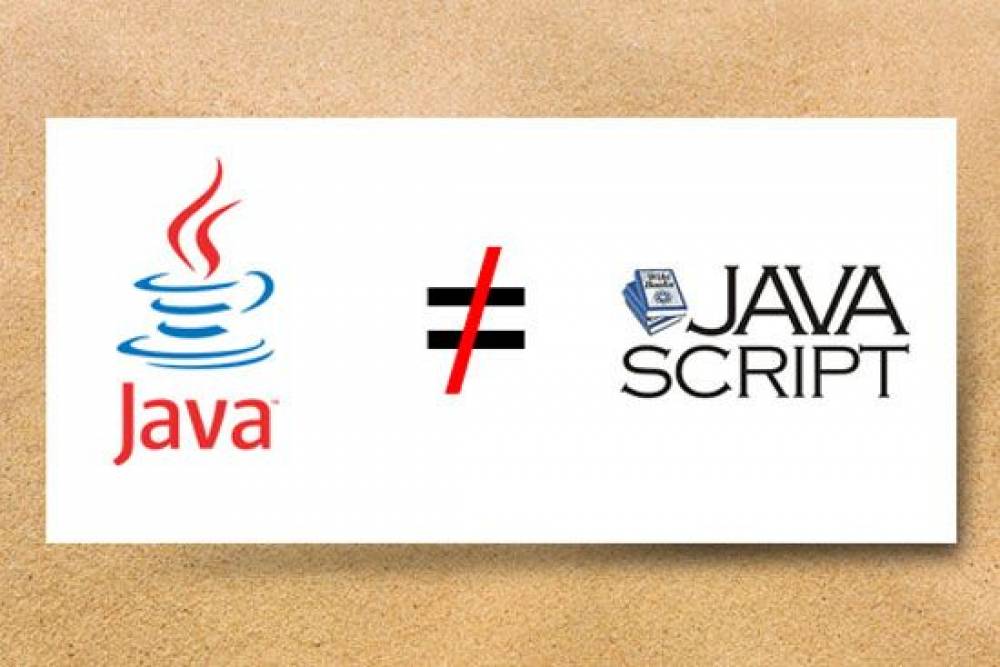
Java Vs JavaScript: Differences Between Programming Languages
Java vs JavaScript: Differences Between Programming Languages
When completing a project, we have a large number of programming languages from which to choose. However, not all of them will be beneficial to us, depending on the project's objectives. There are programming languages that are optimized for web development, others that are optimized for game development, and still others that are optimized for designing programs for the PC or mobile phone. While it is frequently straightforward to distinguish each language from the others, there have always been two that are frequently confused due to their similarity. These are JavaScript and Java, respectively.
How similar are Java and JavaScript?
In both programming languages, the first thing that catches our attention is the name. However, this does not imply that they speak the same language or are even related. JavaScript was originally called LiveScript (when it first appeared in Netscape Navigator), but because it was created to be a Java-like language (albeit for a different purpose), it eventually received its new name, which incidentally served to diminish the popularity of its alternative.
JavaScript and Java share a linguistic ancestor. Additionally, both languages are object-oriented. However, these are the only parallels between the two languages. The purpose, syntax, and even operation are completely distinct.
Otherwise, Java resembles JavaScript as much as a hamster resembles a hamón (ham, from English, ham).
And their differences?
In every other way. Apart from the syntax and the way they are programmed, Java is a programming language that is compiled using a compiler to generate a readable bytecode representation of the original code. This bytecode representation is then executed via a virtual machine on any computer, system, or platform. Rather than that, JavaScript is an interpreter. Web browsers include an interpreter that can read and process instructions directly from the source code, without needing to compile them into a low-level language. This simplifies scheduling and changes, but at the expense of performance.
Another significant distinction is that Java is written in a static manner (each variable is defined and the type of data it will contain is specified), whereas JS is written in a dynamic manner (that is, each variable can contain any type of data). What purpose does this serve? It greatly aids debugging and error detection in the case of Java.
Java can run multiple threads concurrently (that is, it can perform multiple tasks simultaneously), whereas JavaScript operates via event loops, and you cannot move on to the next activity until the previous one has completed.
Finally, both programming languages are object-oriented and employ a technique called "inheritance" at the lowest level. However, Java works with classes (that is, it provides the compiler with the instructions necessary to build the object), whereas JS copies the object directly from the predefined prototype.
Java: a complete programming language for developing cross-platform applications
Sun Microsystems began developing Java in 1991, but it was not released to the public until 1995, four years later. This was one of the most comprehensive and versatile object-oriented languages, particularly because the same compiled executable could be run on virtually any operating system.
While Java is primarily used on desktops and servers, it has made its way onto the web via applets. Additionally, while it is discouraged, it is still used on a number of platforms (such as the Social Security website, the Treasury, and Consumer Affairs) to sign documents or accept receipt acknowledgements.
Java is not only used on personal computers; it is also the primary language used in Android applications. Google chose this language in conjunction with its virtual machines, and it has been instrumental in the company's success (and its problems, both in terms of security and performance). Yes, Java has a significant disadvantage, and that is its high resource consumption, which causes many programs to run slowly and rudely (for example, the popular jDownloader).
JavaScript is at the heart of modern web applications
LiveScript was developed in Netscape and spent ten long years in the lab. Finally, it was released the same year as Java, in 1995. Although, obviously, with distinct goals. The rebranding of LiveScript as JavaScript was a significant marketing move.
It wasn't long before developers recognized the language's potential. And, along with HTML and CSS, it has become one of the three most important languages in web development.
As with Java, JS is a web-oriented language, but some frameworks, such as Electron, enable the development of cross-platform desktop applications. Additionally, thanks to NodeJS, this language can be used to create a variety of backends.

